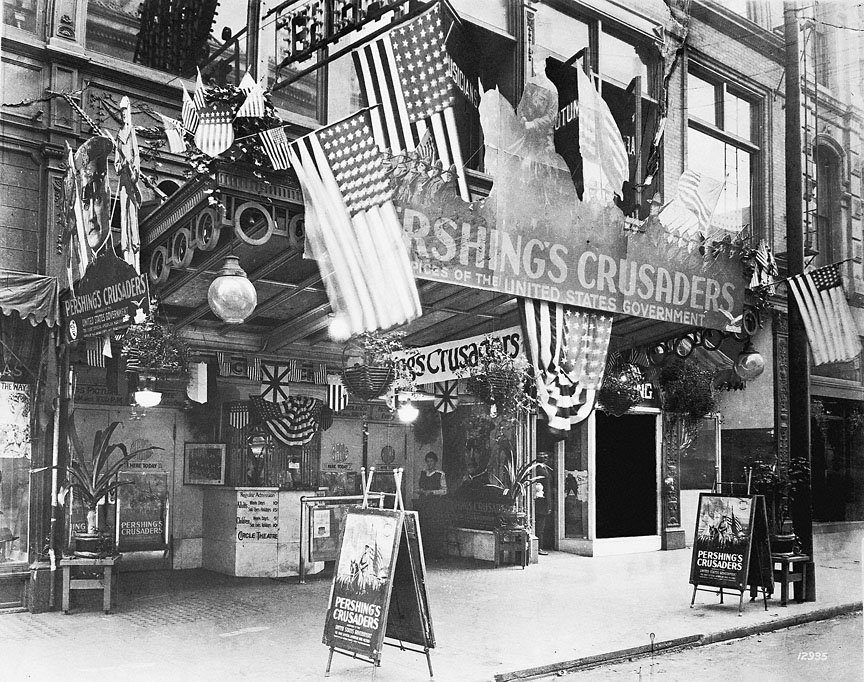- Catalog No. —
- OrHi 102278
- Date —
- circa 1918
- Era —
- 1881-1920 (Industrialization and Progressive Reform)
- Themes —
- Arts, Geography and Places, Government, Law, and Politics
- Credits —
- Oregon Historical Society
- Regions —
- Portland Metropolitan
- Author —
- Unknown
Circle Theater and Pershing's Crusaders
This WWI-era photo of the Circle Theater shows the theater bedecked in red, white, and blue splendor to advertise the opening of a patriotic film called Pershing’s Crusaders. According to the sign at the counter, admission prices ranged from five to fifteen cents. Most Portlanders were highly sympathetic to the war efforts, which were nationally popular as well, and films like this would have had broad appeal.
Patriotism was tempered by fear and suspicion, and fear caused many people to doubt the loyalty of their immigrant neighbors. All German Americans who were not naturalized citizens were classified as enemy aliens, and there was widespread concern that such “enemies” would take part in anti-American activities. To guard against that possibility, German Americans were forbidden by President Woodrow Wilson’s Proclamation #416 to go within 100 yards of the waterfront or a half mile of an armory. This meant that many non-naturalized German immigrants working on the water front, or even in downtown Portland, had to seek special permits to allow them to enter.
Fears about anti-American activities were greatly exaggerated, since almost no such activity occurred. Nonetheless, authorities stayed vigilant and kept even prominent Portlanders under surveillance. They went so far as prosecute and convict German-born, J. Henry Albers for seditious conduct after he disturbed other train passengers by singing loud German songs after having too much to drink. The case was eventually withdrawn but not before the appeals reached the U.S. Supreme Court. Shame and stigma left Albers a broken man.
Written by Trudy Flores, Sarah Griffith, © Oregon Historical Society, 2002.
